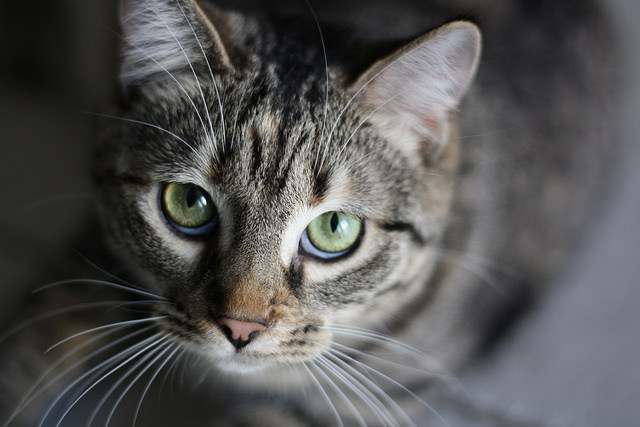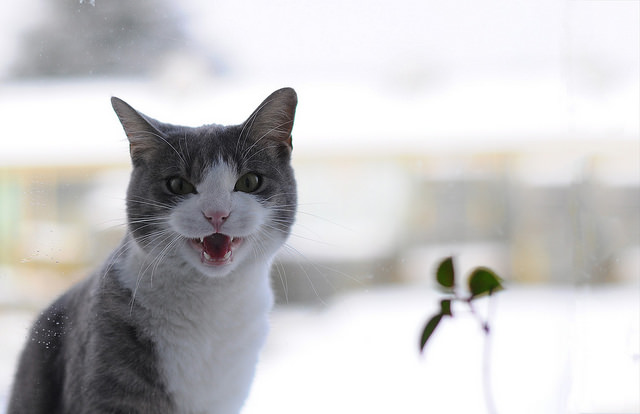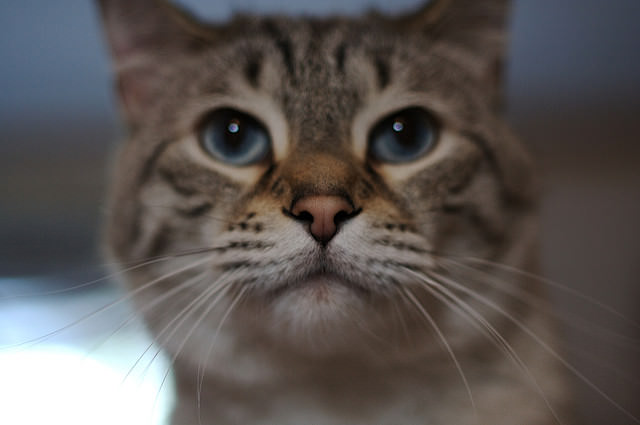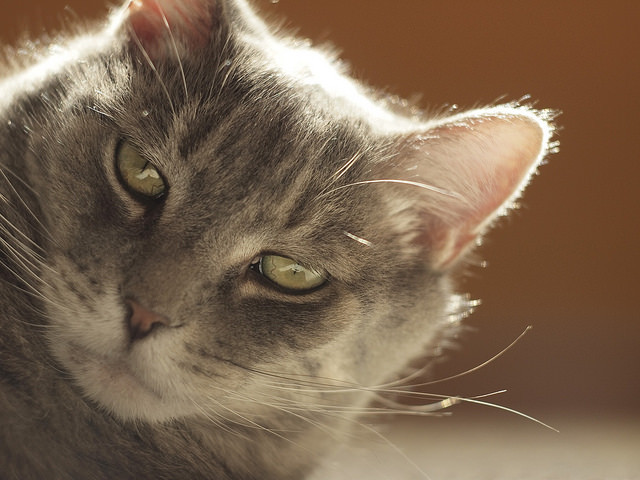Your cat is a nocturnal animal because her wildcat ancestors used to hunt under the cloak of darkness. Your domestic cat still maintains the instinctual need to stalk and hunt all night, even though you keep her food bowl full. While it’s completely natural and normal for a cat to explore at night, it can be frustrating when a cat yowls and prevents you from getting the sleep you need.
If the nighttime chatter is new for your cat, your first step should be a trip to the veterinarian to rule out a health issue. A yowling cat may be experiencing pain or discomfort. If you’ve ruled out health issues, here are 5 things you can do to help your cat develop better nighttime habits.

#1 – Stop Reacting
As far as cats are concerned, nearly all attention is good attention. If you’re reacting to your cat’s chatty nighttime routine (by getting out of bed, petting, talking, feeding, etc.) you’re doing more harm than good and you’re encouraging the behavior. She’ll keep meowing at night if she believes from past experience that you’ll react to it. Instead, implement a strict ‘no reaction’ policy. Don’t reprimand or give positive attention; simply go about your nighttime routine. She may quiet down once she realizes you’re not going to give her the response she’s used to.

#2 – Announce bedtime
Since cats are creatures of habit, it can help to create a routine that she can associate with bedtime. In my house, my cats get treats before I go to bed. This routine is so well established that my cats wait patiently for them when they notice I’m brushing my teeth. The nighttime treats create a defined switch from a bustling day to a quiet night. Your nightly routine doesn’t have to include treats, but it should be consistent. Perhaps you can engage your cat for a session with a wand toy or say a specific phrase every night (being careful to use the same recognizable tone of voice).

#3 – Close the door
Some cats need a clearly defined boundary, such as a closed door, to understand that it’s time to quiet down. Establishing this physical boundary can also help you not react when your cat is being loud at night (or at least not let her see that you are reacting, which is the most important part.)

#4 – Feed before bed
You know how you become sleepy after eating a big meal? That happens to cats too. It takes a lot of energy to digest food. Altering the daily feeding routine so you’re giving your cat one of her meals at bedtime can coax her into a nap just as you’re trying to fall asleep yourself.

#5 – Keep your cat active during the day
Cats are naturally more active at night after napping all day. You may be able to alter your cat’s routine into one that’s more compatible with your own by engaging her in more play during the day. If you aren’t around during the day to make this feasible, consider adding an interactive toy to your home to do the work for you.
